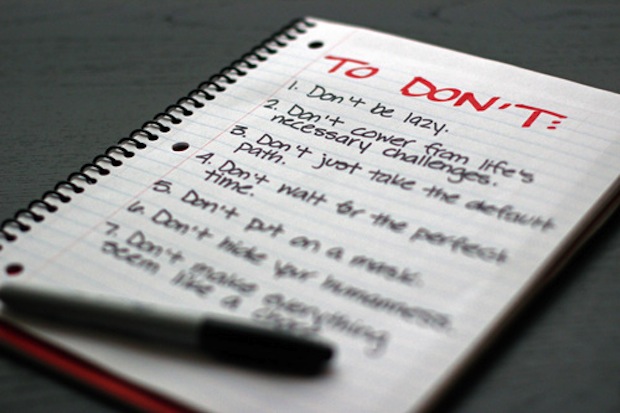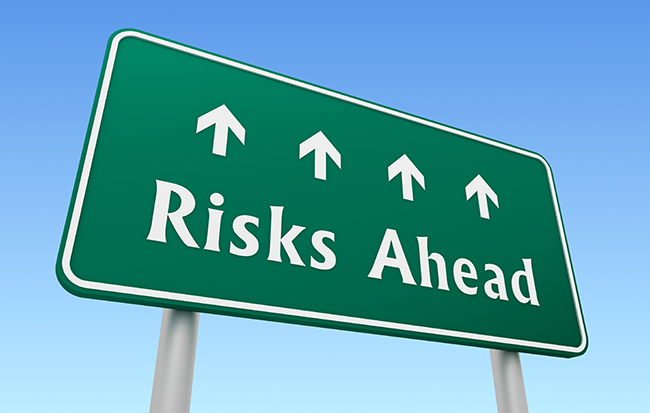I’m a huge sports fan, and especially a big tennis fan.
Ever since I was a kid I admired players like Boris Becker and John McEnroe.
Then I turned my passion into my profession and became one of the youngest sports agents who represented some of the best tennis players in the world.
I watched hundreds of tennis matches live.
I realized that technically not much separates a player ranked 5 in the world from someone who is 50. They hit similar forehands, backhands and serve.
I also noticed one specific pattern that kept repeating itself:
So many times I see a lower ranked professional facing one of the high profile names playing is the best tennis. He is dominating the match and on the verge of making a huge upset.
But then, out of the blue, the underdog would start making silly mistakes, stop hitting winners and literally choke.
Despite being the better player on the court, he would end up losing the match.
And at the same time, the real champions somehow manage to stay cool in these big moments, and even when they’re close to winning a match, they know how to finish a match most of the time in a very convincing manner.
So I kept wondering to myself:
What is going on here?
I am guessing we all have faced situations in which we should have performed well, but literally choked.
For you, this might have meant messing up:
- Negotiations of a sure deal.
- A date that was going so well.
- A standardized exam you were fully prepared for.
Whatever it was:
It must have felt terrible to under-perform in a situation that you really cared about, and which you should have been able to master.
So today I want to help you prevent this from happening again in the future.
Why do we choke?
As a sports agent, I sat in this player box many, many times.
One of the most interesting things to watch his what coaches say to their players.
Actually, from Serena’s match at the US Open, you may already know that coaching is not allowed at tennis events, but it happens all the time. 😉
Often, coaches say things like:
“Don’t make any mistakes, like play safe.”
And guess what happened?
Out of the blue, the player started playing extremely defensive while making one mistake after the other.
Not a great combination if you ask me.
Here is why this happens.
Our brain needs proactive commands and can’t follow instructions on what NOT to do.
It’s like if I tell you right now:
“Do not think of a purple elephant.”
What pops into your head?
A purple elephant.
So, the paradoxical thing here is that when we think of NOT making mistakes in a sports game, we become tight, and we tend to mess things up.
And the reason for this is quite simple:
As we anticipate a painful event, like the embarrassment of losing a match we should normally win, we forcefully try and resist that negative outcome.
Our evolutionary fight and flight response kicks in, which literally makes us panic and freak out.
This is why we make all those unexplained mistakes and perform below our capabilities.
And end up feeling frustrated and helpless.
How can we prevent choking in high-pressure situations?
In a fascinating study by the Arizona State University with baseball players, both novice and expert baseball batters were being been distracted while trying to hit a ball.
In part 1 of the experiment, a big sound would go off at random moments.
As the batters were trying to hit the ball, researchers would ask them whether they heard a high sound or a low sound.
For the novices, the sound was extremely irritating and affected their performance.
But for the experts, it made no difference.
Their performance remained consistent.
In part two, batters had to focus their attention on their action.
When they heard a sound, they had to say whether their bat movement was moving upwards or downwards.
Interestingly, now it was the novices who didn’t mind the questions because they were already focusing on the new techniques they were learning.
Being self-conscious actually even helped the beginners perform better.
But not for the experts:
They were so good at battling that they didn’t need to think about their swing.
For them, being self-conscious affected their performance in negative ways.
In another study by Gucciardi and Dimmock that involved experienced golfers, participants were placed in a competitive golf environment and divided into three separate conditions.
- The first group was asked to pay attention to technical aspects of their swing, like for example their hip movement or grip.
- The second group was asked to fixate their attention on irrelevant words like the color blue or the color black.
- The third group was being asked to focus on holistic words like: ‘’make a smooth swing’’ or ‘’make a balanced swing’’.
As expected, the group focusing on irrelevant words didn’t get nervous, and their performance stayed unaffected.
At the same time, the golfers who had to fixate themselves on their technique started feeling anxious, and their performance went down.
But the most interesting outcome of this study was this:
The group saying out loud holistic words didn’t feel distracted and actually performed well.
So what can we learn from these two studies?
Let me share with you my three big takeaways that will really help you perform much better when facing pressure.
Conclusion #1: Do not focus on what you do not want.

As we have already said:
When we think about the things we don’t want, we end up getting what we don’t want. This is because our brain needs positive commands.
But it is almost impossible to think of nothing, so what should we do?
Conclusion #2: Stay present.

In high-performance situations, it is critical that we focus on the moment instead of thinking of future outcomes and past failures.
Therefore we must enter these situations feeling detached from any outcome.
But staying present doesn’t mean we want to shut down all our thoughts.
Instead, we want to focus on anything that does not make us feel self-conscious:
This might mean focusing on our breathing, on an outside object or on vague goals, like performing at our best, or performing smoothly, or being positive.
Conclusion # 3: Anticipate pressure moments

In order to perform at our best in pressure-filled moments, we want to come prepared.
Ideally, we want to practice in circumstances that are similar to the situation we will face.
So for example, if you are preparing for a presentation you are about to make in front of hundreds of people, practice in front of friends and co-workers beforehand.
Often, however, it is almost impossible to replicate the pressure we will face.
This is where we need to use a bit of imagination and visualize the high-performance situation we will face, in as much detail as we can.
- We want to picture ourselves entering the event and feeling a bit nervous.
- We want to imagine how we calm ourselves down and then stay present throughout our entire performance.
- And we want to see ourselves complete the event in a successful manner, feeling a real sense of joy and satisfaction.
Visualizations take practice, but the more often we do this, the more prepared and relaxed we will be when facing real pressure.
OK, now you have all the tools you need to perform much better next time you feel a little nervous and anxious.
So here is what I would like you to do.
Think of a specific situation in which you normally feel pressurized, despite the fact that you have all the skills to do well.
Ideally, this will be the kind of activity that you have messed up many times in the past.
Then share with me in the comment section below ONE thing you can do immediately to avoid being too self-conscious next time you are in that situation again so that you can finally perform at your best.